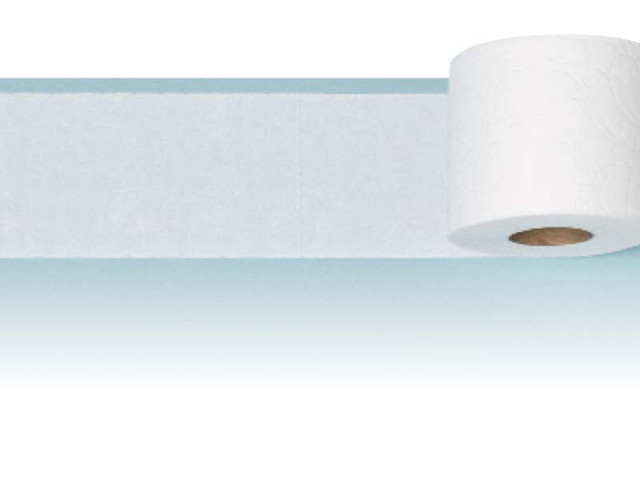‘Saaf Suthro Sindh’ — on paper alone
Little done for the open defecation-free province promised by Sanitation Policy 2017

Most houses in the province’s 13 rural districts were to be equipped with proper latrines and sanitation systems by 2020 under the Sindh Sanitation Policy 2017 - and the province was to be completely rid of open defecation by 2025.
Three years on, though, the 70 per cent target set for 2020 remains a distant dream, with little progress made since the policy came into force, at least on paper.
The sanitation policy, notified in May 2017 by the provincial public health engineering department, primarily aimed at eliminating open defecation from Sindh, as well as improving liquid waste management with sewer lanes and closed drains in both urban and rural areas. The province was also to implement integrated solid waste management.
The five-page document outlining the policy, with a motto of ‘Saaf Suthro Sindh [neat and clean Sindh]’ - aligned itself with the United Nations’ Sustainable Development Goals (SDGs) pertaining to sanitation.
“Our vision for the population of Sindh is to provide better sanitation services to make sure that the entire Sindh has access to a safely managed sanitation service and sanitary environment that is also nutrition-sensitive and hygienic,” reads the policy.
However, sources privy to the matter told The Express Tribune that although projects were initiated with the help of international donors and local NGOs, the actual targets are far from materialising.
Under the programme, 13 high-priority districts were to be free of open defecation by 2020. Over 5,200 villages were listed in it, but work was initiated in barely 1,000 villages, the sources added.
These villages were earmarked from various districts of the province, including Thatta, Sujawal, Badin, Tando Muhammad Khan, Jacobabad, Kashmore, Qambar-Shahdadkot, Dadu, Sanghar, Larkana and Shikarpur.
Meanwhile, the Saaf Suthro Sindh project director, Farooq Ahmed Siddiqui, told The Express Tribune that the department was in the process of declaring over 2,400 villages ‘open-defecation free’ but had to stop “because DFID [United Kingdom’s Department for International Development], our donor, has withdrawn the grant following the coronavirus pandemic.”
The provincial government has now been requested to re-allocate its own resources for this purpose, according to Siddiqui. “We don’t build the washrooms using government resources but mobilise the community to make their own,” he elaborated.
Local NGOs were tasked with finalising the list of villages and then sharing it with the district administration for approval, he added. “After this, village committees are formed and people are sensitised about the consequences of living in a contaminated environment and we engage them to resolve issues.”
Total sanitation?
The policy aims for total sanitation in the province, as outlined by the Pakistan Approach to Total Sanitation (PATS), which refers to the complete eradication of all indiscriminate and unhygienic practices, including the disposal of excreta, foul water and solid waste.
It further planned to incorporate community-led approaches and involve stakeholders including civil society members, NGOs, donors, media and academia to achieve its goals.
Besides, it was to mobilise and engage existing structures, such as Lady Health Workers (LHWs), union councils and the private sector, where possible.
“I think the government has resources. But the will to implement projects with a skilled team of professionals is needed,” explained activist and WaterAid Pakistan provincial coordinator Raheema Panhwar.
Speaking to The Express Tribune, Panhwar said that WaterAid Pakistan - a UK-based charity organisation that works on water, sanitation and hygiene - was ready to provide technical services to the Sindh government to assist in implementing the programme.
“We are already working in various areas, providing sanitation facilities at schools and on the community level,” she said, adding that the organisation had constituted village committees, youth clubs, built washrooms in public schools and carried out water quality testing. “We can help the government with training and technical assistance.”
When contacted, Mir Shabbir Ali Bijrani, who holds the portfolios of the Sindh Public Health and Rural Development Department and the Mines and Minerals Department, refrained from commenting on the policy. “I am down with Covid-19 and will reach out once I have recovered,” he said.
Another department official, Dr Ghulam Mustafa Suhaq, was also unable to share details, stating that he was out of the city and facing network issues. “It’s better to contact the project director,” he added.
Siddiqui, however, insisted that though there were delays, they were still trying to meet the target of eradicating open defecation with proper sanitation facilities by 2025.
Published in The Express Tribune, September 29th, 2020.



















COMMENTS
Comments are moderated and generally will be posted if they are on-topic and not abusive.
For more information, please see our Comments FAQ